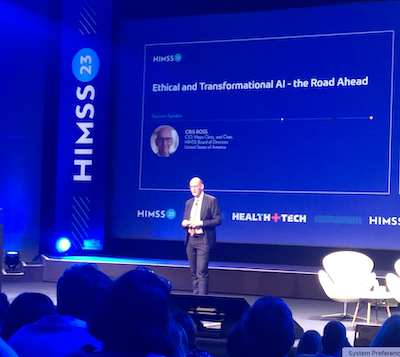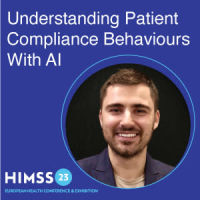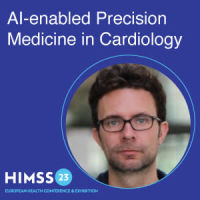During the welcome ceremony of #HIMSS23Europe, Cris Ross, CIO, Chair, Mayo Clinic discussed ethical and transformational Artificial Intelligence (AI) and the road ahead.
According to Cris Ross, AI is already transformational, and its ability to transform healthcare will only increase. He highlighted how radiologists, cardiologists and neurologists are utilising artificial intelligence tools, wearables and voice patterns to identify important symptoms and diseases and deliver treatment. He also discussed the release of ChatGPT and the rush to build other large language models (LLMs) could be a threshold moment.

These large language models are indeed transformational. The computer science behind these models is extraordinary. These models have figured out how to contain the world’s knowledge and store a lot about how humans think simply by understanding how they talk. These language models are also the first AI tools that are completely democratic. They are being trained by people using language. They are being spoken to, not programmed, which is a remarkable change.
Cris Ross discussed two classes of AI transformation in healthcare. One is the idea of little/small AI, which are the helper functions that reduce administrative burden such as voice-to-text, auto answering to routine messages, ambient listening to produce transcripts of patient-doctor visits, search across multiple medical databases to get a summary of a case etc. The second transformation is big AI - the tools that help clinicians do real work - which includes diagnostic algorithms, real-time patient monitoring algorithms or algorithms that recommend treatment.
A much more difficult question that he discussed was: Is AI ethical? It is important to be aware of the ethical implications of technology and to use it in a way that benefits everyone. It is also important to recognise the ethical risks that exist with AI. There is bias during training that could happen when selecting different datasets; there is optimisation that sometimes discriminates. The large language models can also make things up and can leave things out that might be important.
Hence, according to him, the two rules that must be kept in mind when developing and/or using AI in healthcare include:
Rule #1: If you are producing AI, don’t be evil. Make sure your technology is being used for its intended purpose and that risks and boundaries are reported. Make sure the technology is not being used for a bad purpose.
Rule #2: If you are consuming AI, don’t be stupid. Take AI recommendations as recommendations and not as gospel truth.
Finally, Cris Ross spoke about the road ahead. According to him, the environment related to AI might be uncertain, but one thing is certain - there are likely to be different regulations in China, the EU, North America, and the UK- all regions with robust AI capabilities. AI has enormous potential to transform healthcare. We know there will be disruption on the road ahead, and technologies will change how clinicians work and engage with patients. Patient empowerment is likely to change with technology.
HIMSS will continue to guide the development of AI and advocacy with governments and non-government organisations worldwide. But overall, we have to ensure that the seismic evolution in technology really aligns with healthcare’s broad mission to serve more patients, help more people and achieve equitable healthcare.
Source: HIMSSEurope23 Welcome Ceremony
Image Credit: HIMSS



























